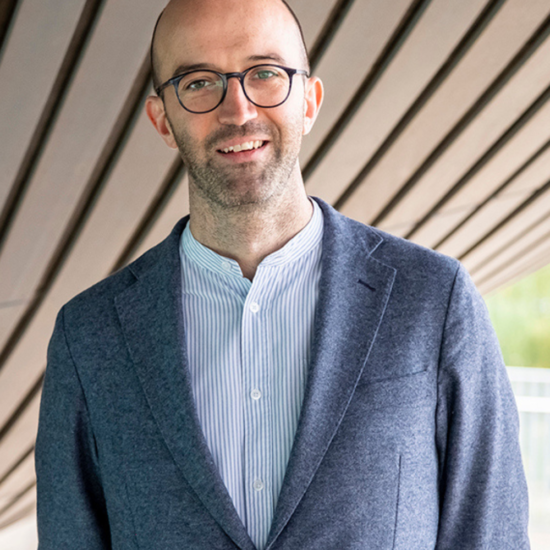
Funding place-based systemic change: Bore Place case study
The funding place-based systemic change project includes a series of case studies from places and organisations that are learning to change systems. The framework for place-based systemic change describes five approaches to change.
This case study describes approach 3: building and enterprise-driven.
These are organisations that start from a local building or a local enterprise (often both). They evolve from the business model of that space or enterprise, to connect with a range of issues within their place, which affords them opportunities to influence and shape systems. Their enterprising and community approach gives them a particular way into systemic challenges.

Summary approach and learning
Bore Place is place based not because it is a ring-fenced area but because of the educational objectives of the Trust and the site’s connection to the surrounding place and people. Its challenge is maintaining the balance of the multiple businesses it hosts, their financial sustainability with its social and environmental aims
About Bore Place

Bore Place in Kent is set in 500 acres of countryside, which encompass an organic dairy farm, organic market gardens, conference centre, environmental education centre, as well as programmes for young people.
Bore Place is home to the Commonwork Trust, which was founded in the 1970s by a couple who bought the property with a vision
“to explore how to live and work sustainably understanding and recognising the interconnectedness of the environmental, social, economic and political aspects of sustainability.”
While best known for the conference centre and farm, in recent years the systemic and interconnected ambitions of the founders’ vision have returned to being priorities of the leadership of the modern organisation.
Place-based work
Place and systems make sense to people that work the land in a different way to those who consider them in urban or socio-economic contexts. The Trust’s role has grown from the experiences and challenges of running a working farm, of seeing young people engage with the land and understanding that while running a really good business is necessary, it is not enough to achieve their ambitions for sustainability.
Education
The Trust aims to use Bore Place to help people think about their interactions and relationship with the land in a different way. This happens through school visits, targeted programmes for young people with specific learning needs that are commissioned by the local authority, and through adults coming to the site for conferences and events. It uses environmental projects and farming practice to demonstrate what a sustainable relationship with the environment looks like. It uses the place to engage people in systems.
“We’re bringing together into one location things that co-support and connect a rural location.”
Environment
The Trust works beyond its place by working with a range of other local landholders to think completely differently about how landholding and land subsidies are used. As the relationships have evolved, so has their ambition. The work has become much more about how the practices of working, caring for, engaging with and using the land needs to change for environmental reasons. It is a place-based approach to the climate emergency.
The rural setting of Bore Place sets it apart from much place-based work. Fewer people, more land and a less defined boundary open up new and interesting questions for the Trust such as how should the land be designed and managed for the society around it, and how can they influence others to think differently about land management.
Relationships
Bore Place farm is run in partnership with an experienced farmer, there is also a venue (for conferences, retreats, holidays, weddings and camping), rentable space and partnerships with local businesses (such as a cheese maker, an under woodsman and a vegetable grower), and the local authority commissions work to support young people with additional educational needs.
Each of these elements requires a significant investment to demonstrate the highest quality of farming and land management practices so it can play an influential role locally and with the companies that come through and use the space. That influence on the companies that hire the venue justify the investment in the conference centre.
The key connections have been with the collaborators of the businesses, then the customers and the users of the space. Finally those who the Trust is trying to build more outward facing partnerships with. The Trust has moved from partnership and collaboration in the business domain, to thinking about what that looks like with the users of the site, to thinking about what that could look like across a wider system
“I’m not interested in bidding and transactional relationships. I’m interested in a long-term project.”
Resourcing and operating
These relationships and connections lead to a fine balancing act. Each bit of the business model needs to work financially and also in a way that is supportive of the mission. There is a temptation to focus on the lowest risk, highest earners – the venue and the farm. Any risk means they may have to extract something from that asset or generate a surplus from the Farm but without that risk there is no systemic change.
Looking ahead
The ambition of Bore Place and the Trust has grown with its understanding of the land, and the way in which the social businesses that sit around it can influence and support their ambitions to engage in much larger systemic questions of land use and land management in this country.
How can those environmental ambitions balance with the business model of the site?
Find out more about the Funding for Systems Change project.
Read learning papers 1, 2 and 4

- Want to find out more?
- Contact Private: John Hitchin on:
- 020 7033 2639
- j.hitchin@renaisi.com







